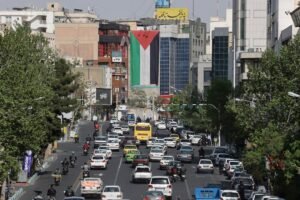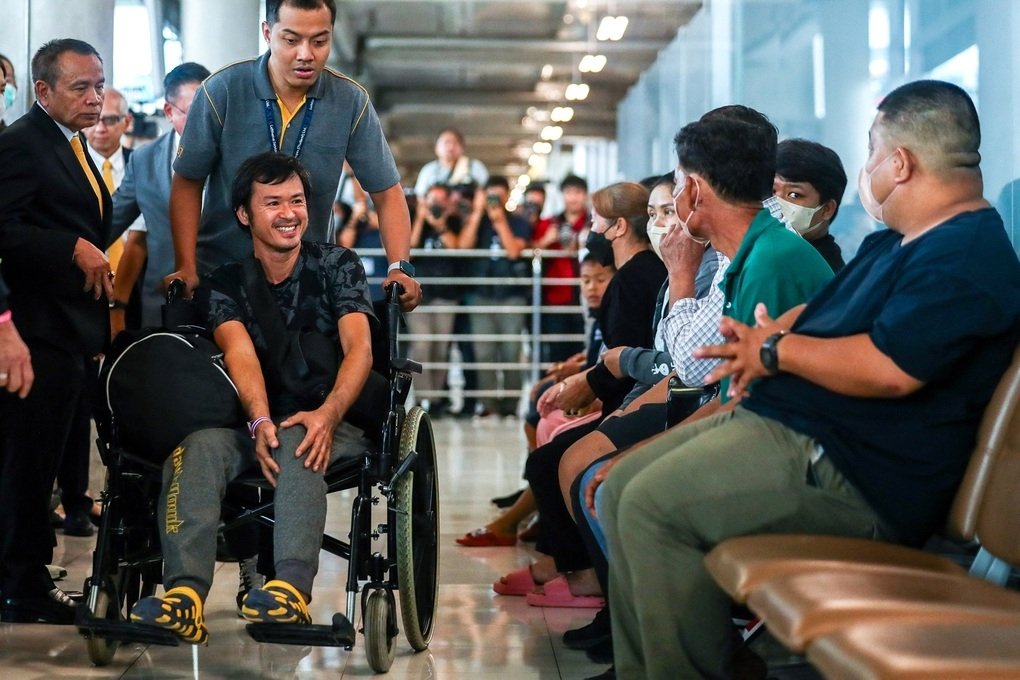
Thai workers are torn between the war between Hamas and Israel 0
(Dan Tri) – When Boonchai Saeyang returned to Thailand on October 13, his heart still ached for his compatriots who remained in Israel to work on a farm near Gaza.
A Thai person injured in a surprise attack on Israel by Hamas returns to Bangkok, Thailand, October 12 (Photo: Reuters).
Those people chose to stay for financial reasons, even though Hamas militants once invaded and shot dead civilians in the village where they lived, Boonchai said.
`This is understandable because some people still have debt to pay. They want to wait and see what the situation is,` the 35-year-old man told reporters upon arriving at Suvarnabhumi Airport in Bangkok.
Boonchai is just one of thousands of Thais who have come to Israel in the past 10 years under the foreign worker program to fill the gap in much-needed human resources for the agricultural industry here.
Dozens of foreign workers have been killed or kidnapped since Hamas attacked Israel on October 7.
The Thai government pledged to repatriate workers who wish to return and set a target of bringing 4,000 people home by the end of this month.
Large source of labor from Thailand
According to the Israeli government, as of July, there were about 119,000 legal foreign workers and more than 25,000 illegal workers here.
The agricultural industry imports almost all its workers from Thailand, although there are also several thousand interns from Asia and Africa working as part of work-study programs.
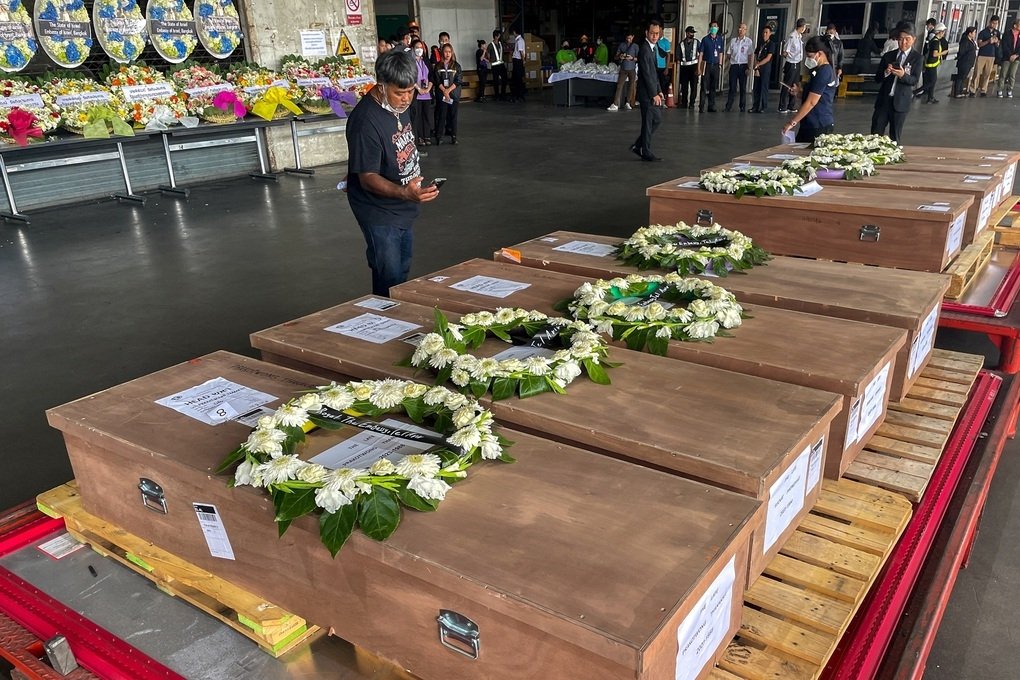
The coffin carrying the body of a Thai worker killed in a Hamas attack on Israel was brought to Suvarnabhumi Airport in Bangkok, Thailand, October 20 (Photo: Reuters).
Thai people have come to work in Israel decades ago.
According to research by anthropologist Matan Kaminer, hundreds of agricultural interns and volunteers from Thailand came to Israel in the 1980s, and thousands arrived in the country in 1992.
`Israel made a strategic decision to replace Palestinian workers with immigrant workers so as not to be dependent,` Kaminer told Nikkei Asia.
By 2011, the labor recruitment roadmap was formalized with the two countries signing an agreement on the Thailand-Israel Cooperation on Labor Placement (TIC) project, which was implemented in 2013.
The agreement eliminated labor brokers on the Thai side, set flat fees and put the United Nations International Organization for Migration (IOM) in charge of recruitment and training in Thailand.
According to TIC, Thais are allowed to work in Israel for a maximum of 5 years and 3 months but only in the agricultural industry.
The emergence of TIC has helped cut the fees workers pay from an average of $9,000 to about $2,100, according to 2019 research by Rebeca Raijman and Nonna Kushnirovich.
Ms. Kushnirovich said the rate of agricultural visas remained stable, accounting for about a quarter of the total number of foreign work visas.
In 2020, Israel and Thailand signed a new TIC agreement without IOM’s participation but retaining the same terms.
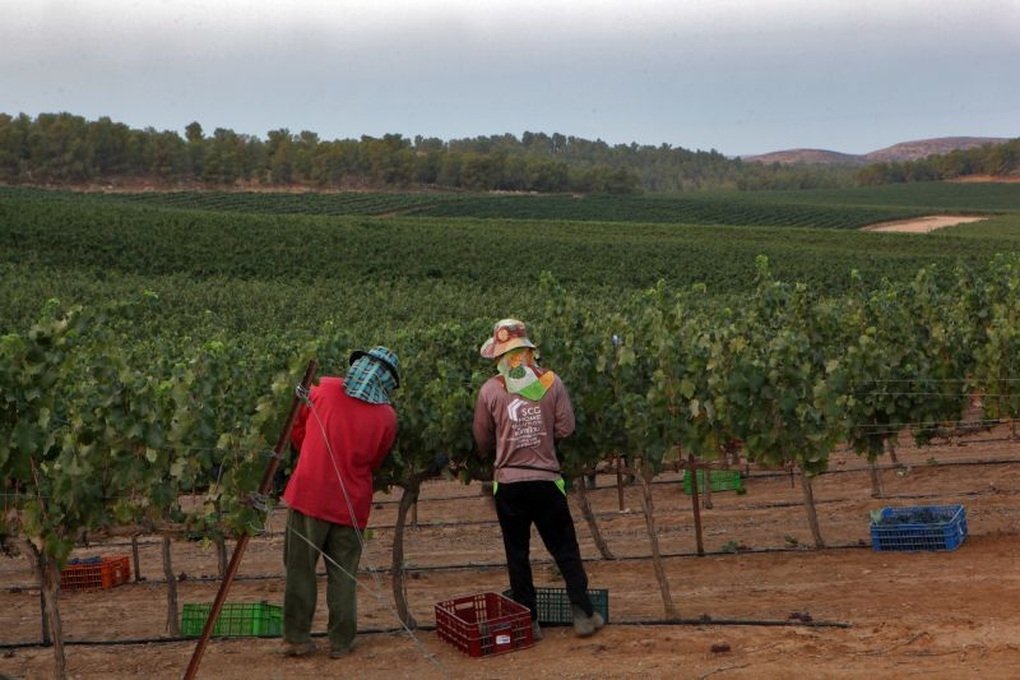
Thai workers at a vineyard in southern Israel (Photo: Getty).
Catalyst for change?
According to Raijman and Kushnirovich’s research, most Thai migrants in Israel are men and 84% come from northeastern Thailand.
An official at the Thai Ministry of Labor’s employment agency, which oversees the training of migrant workers, called the program a `win-win` arrangement.
`Workers can return home with large amounts of money in Thai baht. They can pay off their debts and even build a new house for their families,` the official said.
However, cases of Thai labor mistreatment on farms continue to plague the industry.
According to the above study, many people do not receive legal benefits, face unsafe working conditions and have difficulty accessing medical care.
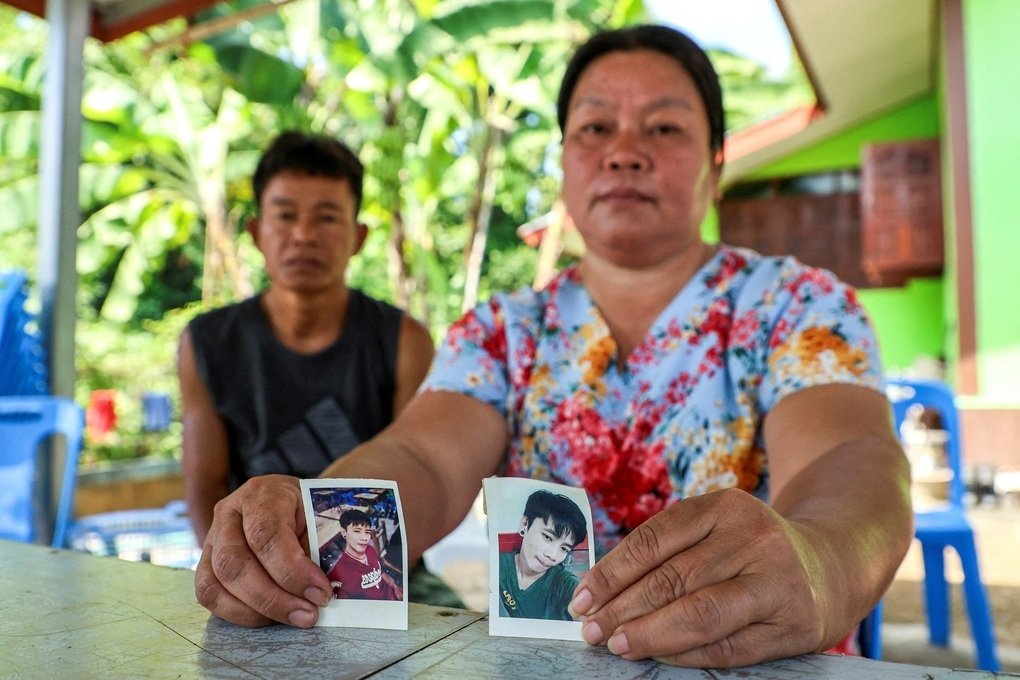
A couple holds up a photo of their child kidnapped by Hamas.
Yahel Kurlander – a volunteer with the Aid to Farm Workers (AFW), newly established to help Thai workers in Israel – said there are about 5,000 registered Thai workers and 1,000 unregistered
`In many locations where workers were evacuated, they were forced to immediately return to work. In other places, landlords said outright that those who wanted to stay another week would have to work.`
In a Facebook post last week, Israel’s Ambassador to Thailand, Orna Sagiv, pledged that Thai workers affected by the Hamas attack would receive `the same treatment and protection as everyone else.`
However, researchers such as Yahel Kurlander, a scholar specializing in Thai workers in Israel, believe that this event could be a catalyst for the situation to improve, as some Thais do not want to return home.
`When demand for workers is extremely high, they can ask for more pay and more benefits,` Ms. Kurlander said.
